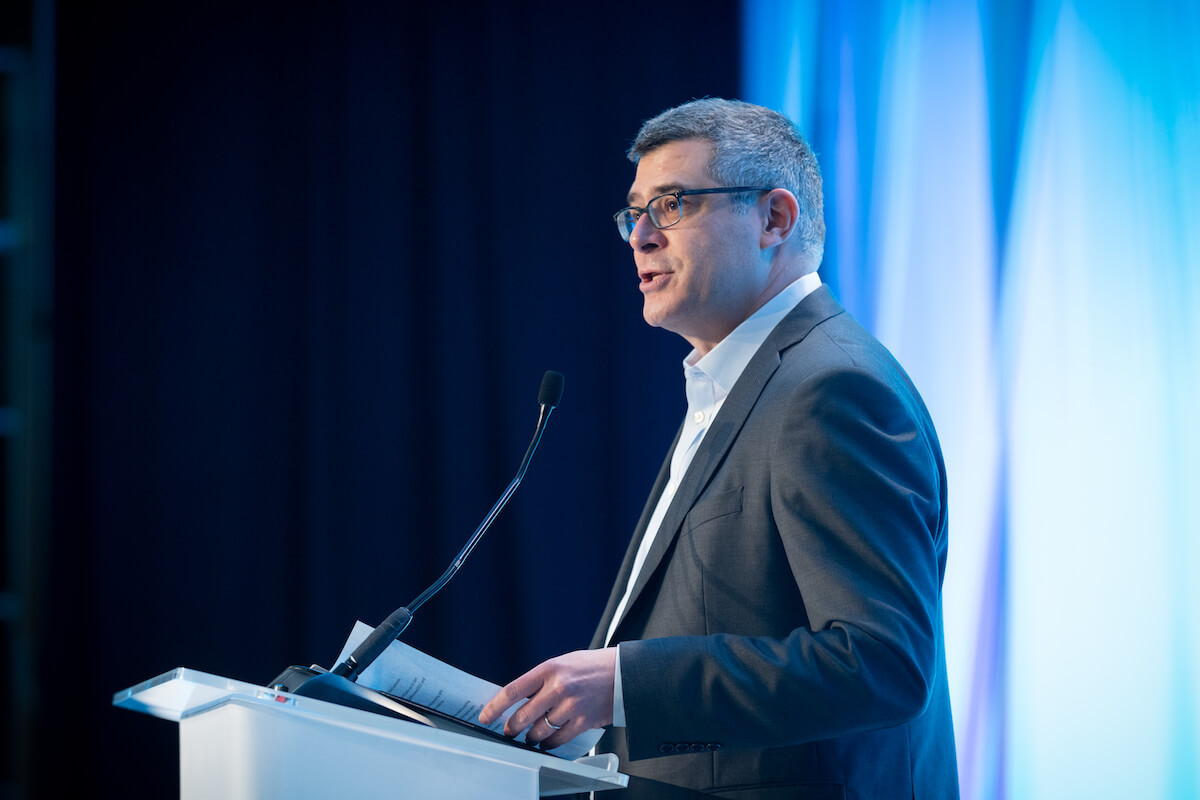Greetings, Agents of Impact!
Featured: ImpactAlpha Original
Local Opportunity Zone headlines tell a different story: They’re working. It’s not surprising that politically well-connected big shots would press for, and in some cases receive, special treatment for pet projects to qualify them for Opportunity Zone tax breaks. What’s more surprising is the growing number of examples in which capital chasing the Opportunity Zone tax incentives has been a lifeline for local industries affected by the trade war, a source of financing to repurpose blighted buildings, and a way for small-town mayors to put their cities on the map. Among the headlines: “Las Vegas council approves financing for major affordable housing project” and “Vacant Detroit building to reopen with 14,000-square-foot food hall.”
These stories of community revival contrast with the drumbeat of critical stories that have raked the muck for examples of questionable treatment for wealthy investors and campaign donors, such as Wayne Huizenga and Jeff Vinik, Michael Milken and Dan Gilbert, and projects that may run counter to the intent of the Opportunity Zone legislation. “We see that the narrative is starting to be written already that the law is only serving those who really don’t need additional help,” says Tom Bartlett of 20 Degrees, a D.C. firm whose business accelerator is helping connect formerly incarcerated and returning-citizen entrepreneurs with Opportunity Zone funding. “That will be the narrative if we don’t provide some counter-examples and if people remain apathetic and stay out of stay out of the marketplace.” Economic Innovation Group’s new Opportunity Zones Activity Map rounds up dozens of local and impact-oriented funds, deals and initiatives, including many reported in ImpactAlpha. “Information makes markets,” says EIG’s Kenan Fikri. “The Opportunities Zone market is forming and it’s looking really good.”
Keep reading, “Local Opportunity Zone headlines tell a different story: They’re working,” by Dennis Price on ImpactAlpha.
Dealflow: Follow the Money
Unconventional Ventures backs eight underrepresented Nordic founders. Arlan Hamilton launched Backstage Capital four years ago to get more venture capital flowing to women and underrepresented entrepreneurs in the U.S. Copenhagen-based Thea Messel is bringing the model to Europe. Messel’s Unconventional Ventures raised a €125,000 micro-fund to make early investments in startups led by female, LGBTQ, immigrant and founders of color and has invested in seven companies. (Familiar statistics: 88% of the €2.3 billion invested in Nordic startups last year went to all-male founding teams.) The micro-fund was backed by 60 investors, including Hamilton. Some of the fund’s backers cut checks as small as €500.
- Current portfolio. Unconventional’s portfolio includes Riteband, a “stock exchange” for music; Boost Thyroid and Progress Me, online support communities for people with autoimmune conditions and eating disorders; media diversity analytics tool Ceretai; social networking app Panion; surplus produce marketplace Grim; and workplace equality insight platform Equality Check.
- Deal flood, capital drip. Finding companies to invest in has been easy. “I get so much inbound,” Messel told European startup publication Sifted. Fundraising, not so much. Messel cut back the size of the first fund. (Hamilton faced similar first-time fundraising challenges. See, “Arlan Hamilton: The VC taking cold calls from underestimated entrepreneurs”.)
- Ahead of the curve. Other recently raised funds applying a gender investing lens include Borski Fund in the Netherlands and Aruwa Capital and Alitheia IDF in Africa (see, “Gender-Smart Investing: More than two dozen new funds investing with a gender lens”). Unconventional’s application of other diversity lenses expands a trend that has been more noticeable in the U.S. than elsewhere.
- Check it out.
Kimaï snags €1.1 million for ethical jewelry designs. The London-based startup uses lab-grown diamonds and recycled metals to appeal to consumers concerned about labor abuses and negative environmental impacts in the jewelry market.
Fundopolis launches to jumpstart local equity crowdfunding. The Boston-based platform is connecting everyday investors (Fundopolis “Citizens”) to startups in need of funding, emphasizing businesses’ local ties and community roots.
Leyline backs waste-to-fuel facilities in Philadelphia and New Jersey. The renewable energy fund is providing project development financing to de-risk two anaerobic digestion facilities, which will convert 1,100 tons of organic waste into biogas daily (see, “Soros spinout spots Leyline $150 million to de-risk clean energy projects”).
TeiaCare secures €1.1 million to help nurses keep tabs on senior patients. The European Union’s EIT Health Investor Network backed the Milanese health tech startup to improve care for Europe’s aging population.
Memphis launches early childhood education pay-for-success program. Maycomb Capital’s Community Outcomes Fund invested in a program to enroll 1,000 low-income four-year-olds in high-quality early education programs (see, “Prudential, Kresge and Steve Ballmer back Maycomb Capital’s pay-for-success fund”).
Signals: Ahead of the Curve
Stock market climate mandates are on the ballot in U.K. election. Companies that are not adequately addressing the “existential crisis” of climate change could be delisted from the London Stock Exchange if the Labour Party wins the general election next month. Shadow chancellor John McDonnell declared that Labour, which advocates for a “stakeholder economy,” would amend the corporate code to create climate standards for listing on the exchange. “If we are to…keep global warming 1.5 degrees above pre-industrial levels, we need to ensure companies are also working alongside government,” said McDonnell.
- Social stock markets.The U.K. also is home to the Social Stock Exchange, a directory of companies listed on other exchanges that meet social and environmental standards. The growing number of social stock exchanges around the globe includes Singapore’s Impact Investment Exchange (IIX) and Canada’s Social Venture Exchange (SVX). Jamaica, Scotland and, most recently, India, have also launched or proposed social exchanges. In the U.S., the Long-Term Stock Exchange, created by “Lean Startup” author Eric Reis, gained S.E.C. approval in May. The exchange, which is not yet live, builds in incentives for long-term value creation over short-term profits.
- Government role. Alternative stock markets are likely to remain a niche, which is why Labour’s idea is so intriguing. “If they could pull it off it could potentially have big effects both there and with other markets that connect,” said Cutting Edge Counsel’s John Katovich, former general counsel for the Boston and Pacific Stock Exchanges. “Until governments step in to mandate these material issues and the lapses of responsibility toward our climate, companies will likely continue to be more attentive to shareholders” and short-term profits.
- Share this post.
Growth in U.K. social investments. The U.K.’s social investment market is worth more than £3.5 billion ($4.5 billion), after growing at least 30% each year since 2015, according to Big Society Capital. The number of transactions grew to 1,023 last year from 755 in 2017 (see, “Lessons from the U.K.: Seven ways to catalyze social investments in high-impact enterprises”).
Agents of Impact: Follow the Talent
Jit Bhattacharya, ex- of Fenix International, joins Factor[e] Venturesin Nairobi… Amy Duffuor, ex- of Bank of America, joins Prime Impact Fund as a principal; Michael Campos, previously a fellow with ARPA-E, joins as an associate… Schroders commits to integrating environment, social and governance, or ESG, across all of its investments by 2020… The Global Impact Investing Network is hiring an Australia liaison… Confluence Philanthropy is looking for a development manager in Oakland.
Thank you for reading.
– Nov. 21, 2019











